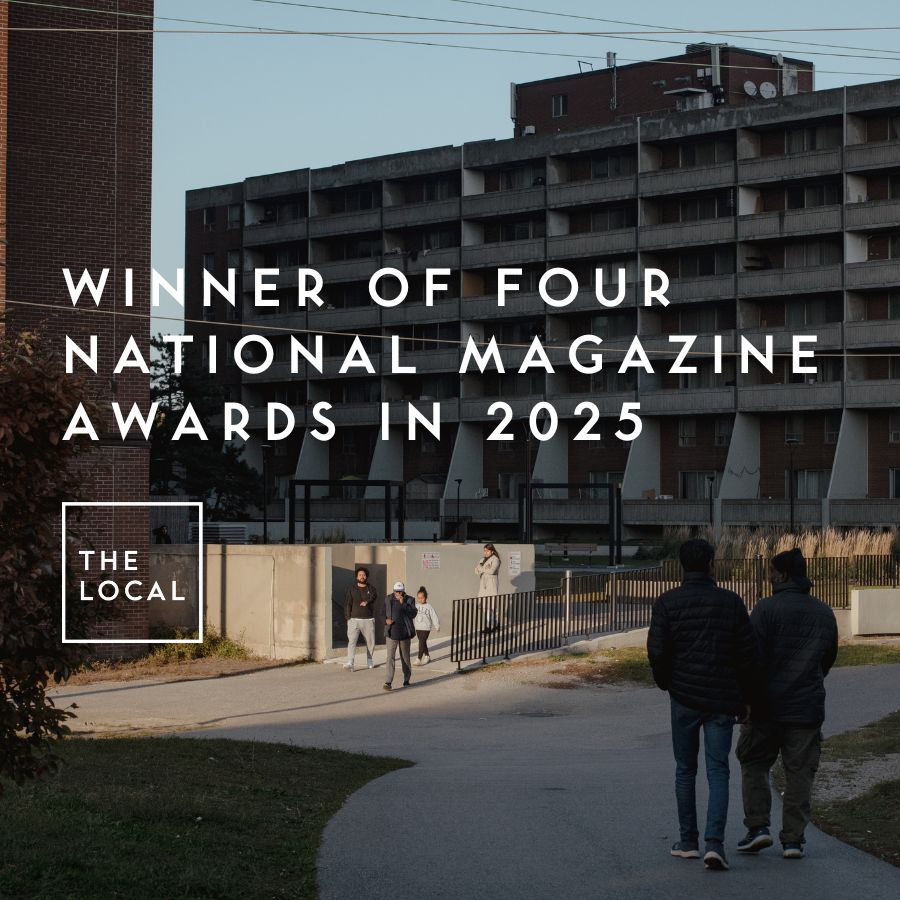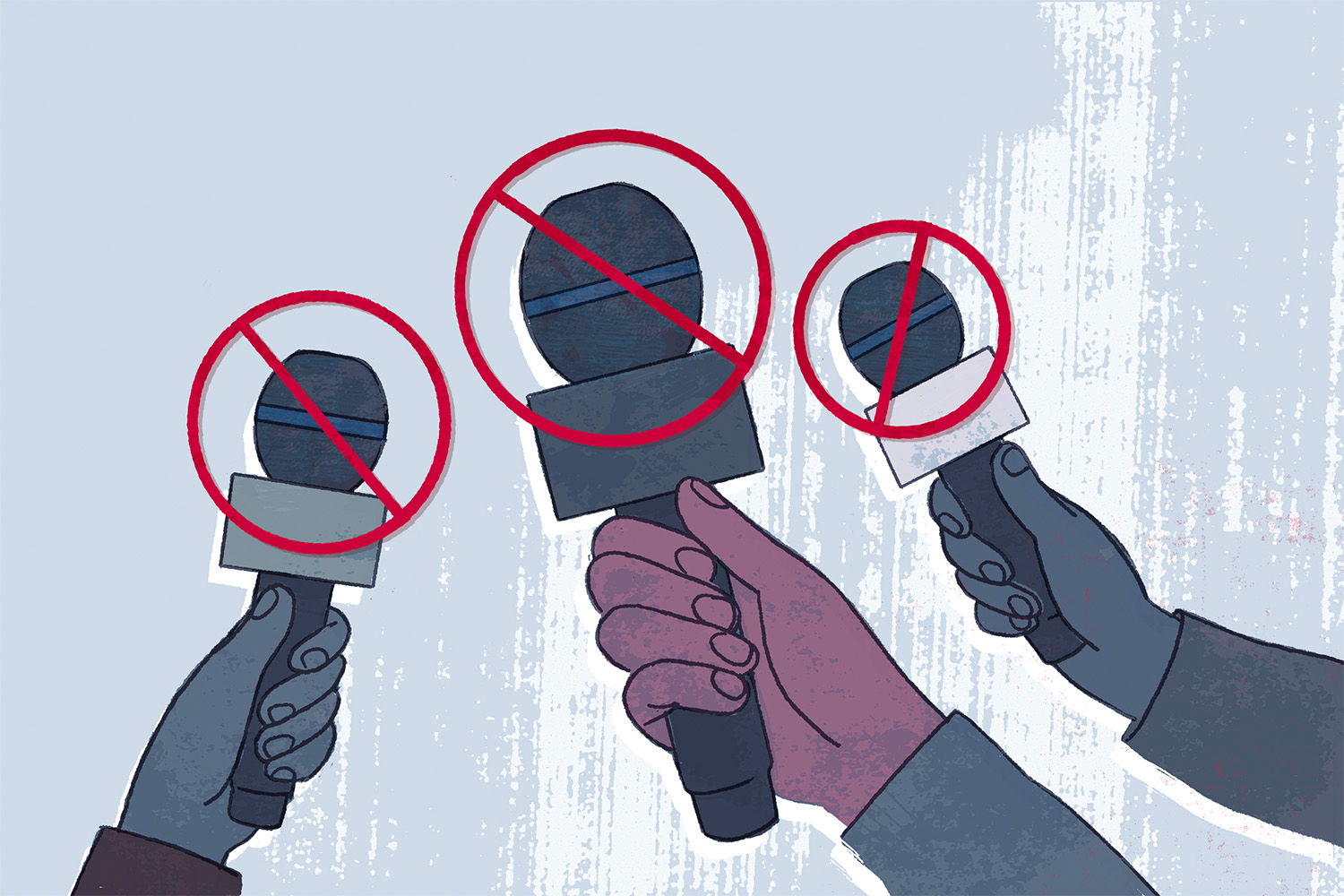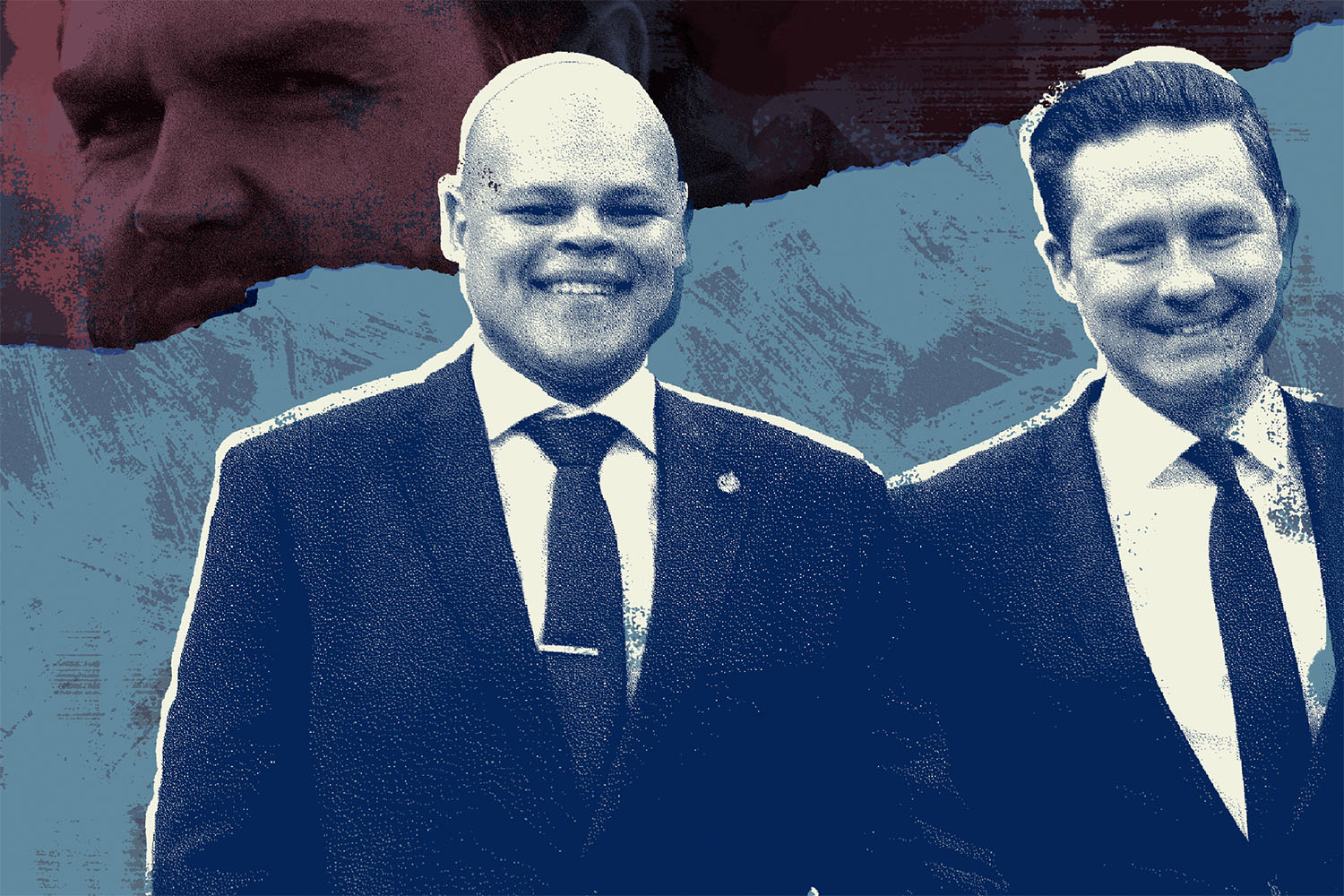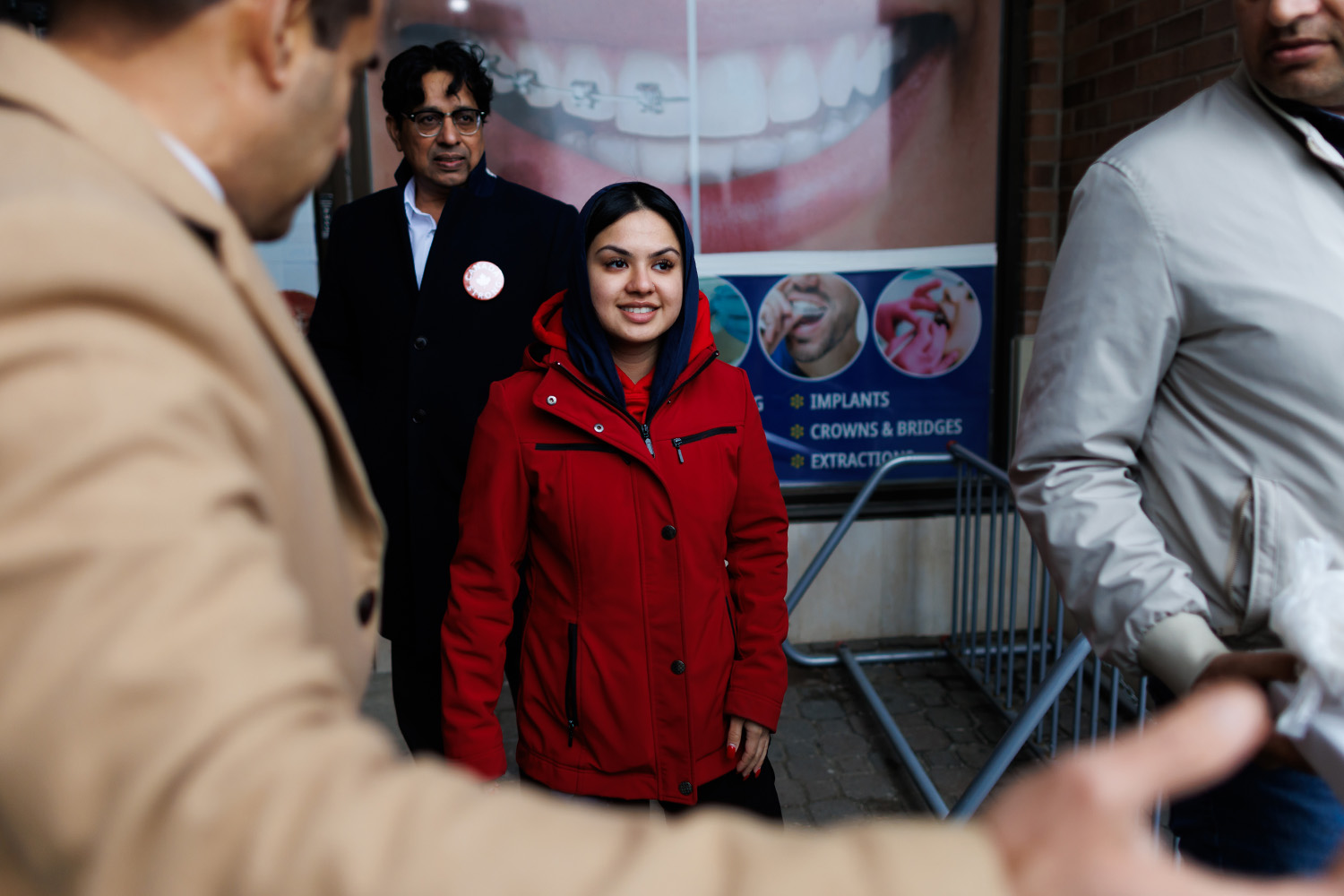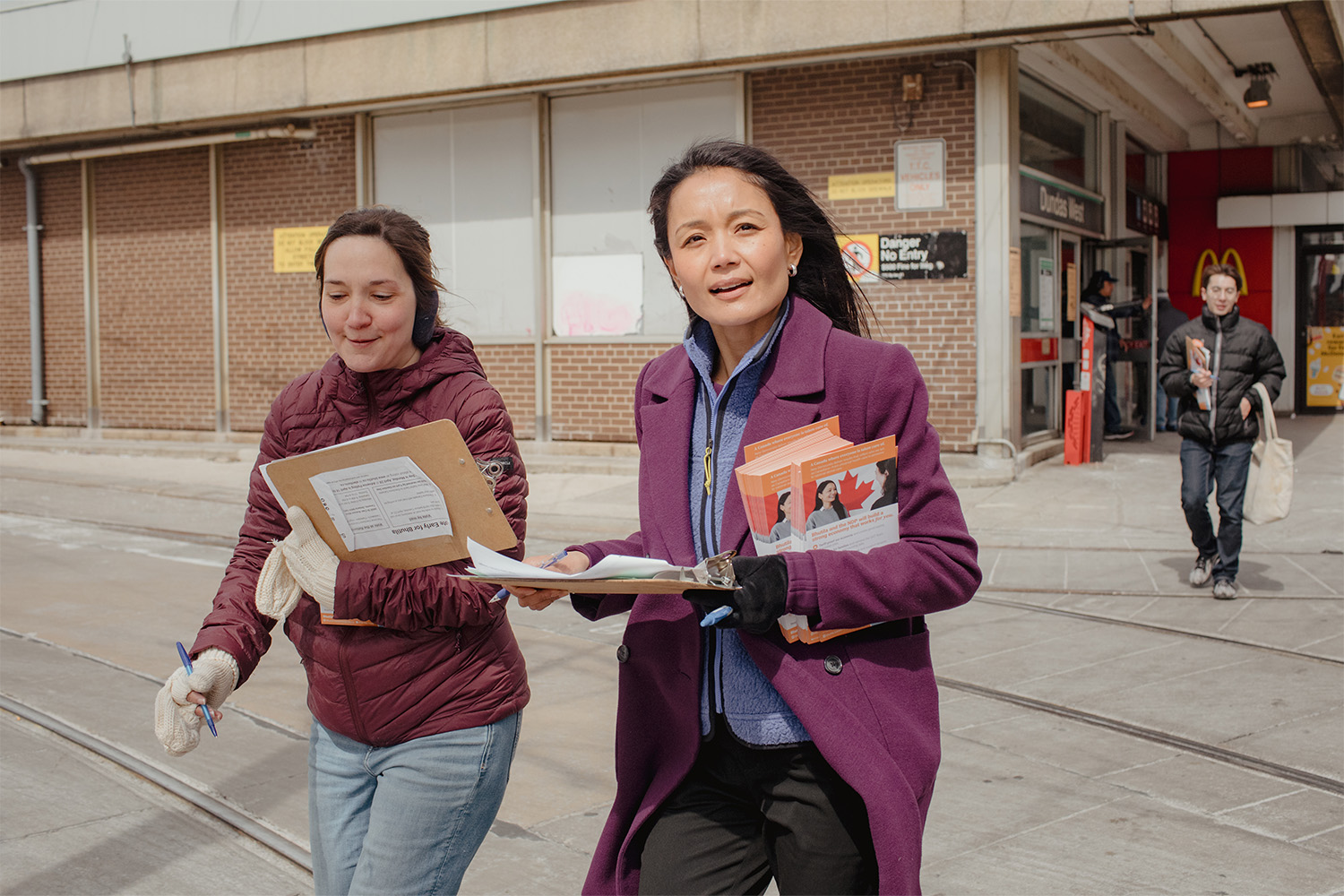
In 2023, Han Dong, the MP for Don Valley North, was thrust into a maelstrom of foreign interference allegations. These allegations, which included unproven claims that he conspired to keep Canadians Michael Spavor and Michael Kovrig detained in Chinese prison for political gain, created a furor. Dong resigned from the Liberal caucus to serve as an independent while he worked to clear his name. He filed a defamation lawsuit that’s still in the courts, and a public inquiry was launched into whether foreign states were engaged in undermining Canadian democracy.
Today, though the final inquiry report vindicated Dong, the Liberal party has not brought him back into the fold. And in late March, he announced he would not seek re-election as an independent.
Despite Dong’s exit from the race, the spectre of foreign interference continues to loom over Don Valley North—although perhaps not in ways one might expect.
Two of the frontrunners are of Chinese heritage—Joe Tay, who’s running for the Conservatives, and Liberal Maggie Chi. Yet for very different reasons, both are avoiding media attention. Tay is the subject of a HK$1 million ($180,000 Canadian) bounty and is wanted in Hong Kong for his vocal support of the territory’s pro-democracy movement. Canada’s election interference task force has also found an operation to discredit him on social media platforms for the Chinese market. Meanwhile, Chi is trying to steer clear of the perception in some quarters that Liberals—and ethnic Chinese party members especially—have an overly cozy relationship with Beijing.
Despite the public nature of running for office, both are being very selective about giving media interviews and declined requests for media access to their campaigns. (They did not agree to speak with me.) Their respective campaign managers described tight, busy schedules and wanting them to focus on the election without distractions. But Tay’s office also cited unspecified safety concerns, while Chi’s team pointed to the “ridiculous” attacks leveled against political figures with a Chinese background. These tensions speak not only to ongoing concerns around the role of outside forces in Canada, but the disparate experiences and perspectives within Canada’s Chinese diaspora.
In the wake of the foreign interference imbroglio, candidates and politicians of Chinese heritage across the country find themselves treading a fine line. Transnational repression by China is well-documented and alarming—it includes efforts to silence exiles through family intimidation, threats, online or phone harassment, and repatriation. Yet accusations of foreign interference in the absence of supporting evidence can lead to unwelcome consequences too. It contributes to anti-Asian racism and casts a pall over political figures who take a more nuanced approach to China, or who don’t denounce the regime outright.
“There’s been a hysteria going on,” B.C. Senator Yuen Pau Woo told me when I reached him by phone in early April. In a submission to the public inquiry commissioner, Woo had warned that an overzealous approach to combating foreign interference could damage the very democracy Canadians are trying to defend.
Candidates with Chinese heritage face a catch-22, he said. “Everybody is terrified of getting the label that you are either interfered with or involved in interfering.”
Federal Election 2025
For in-depth election coverage from across the GTA, sign up for our free newsletter
"*" indicates required fields
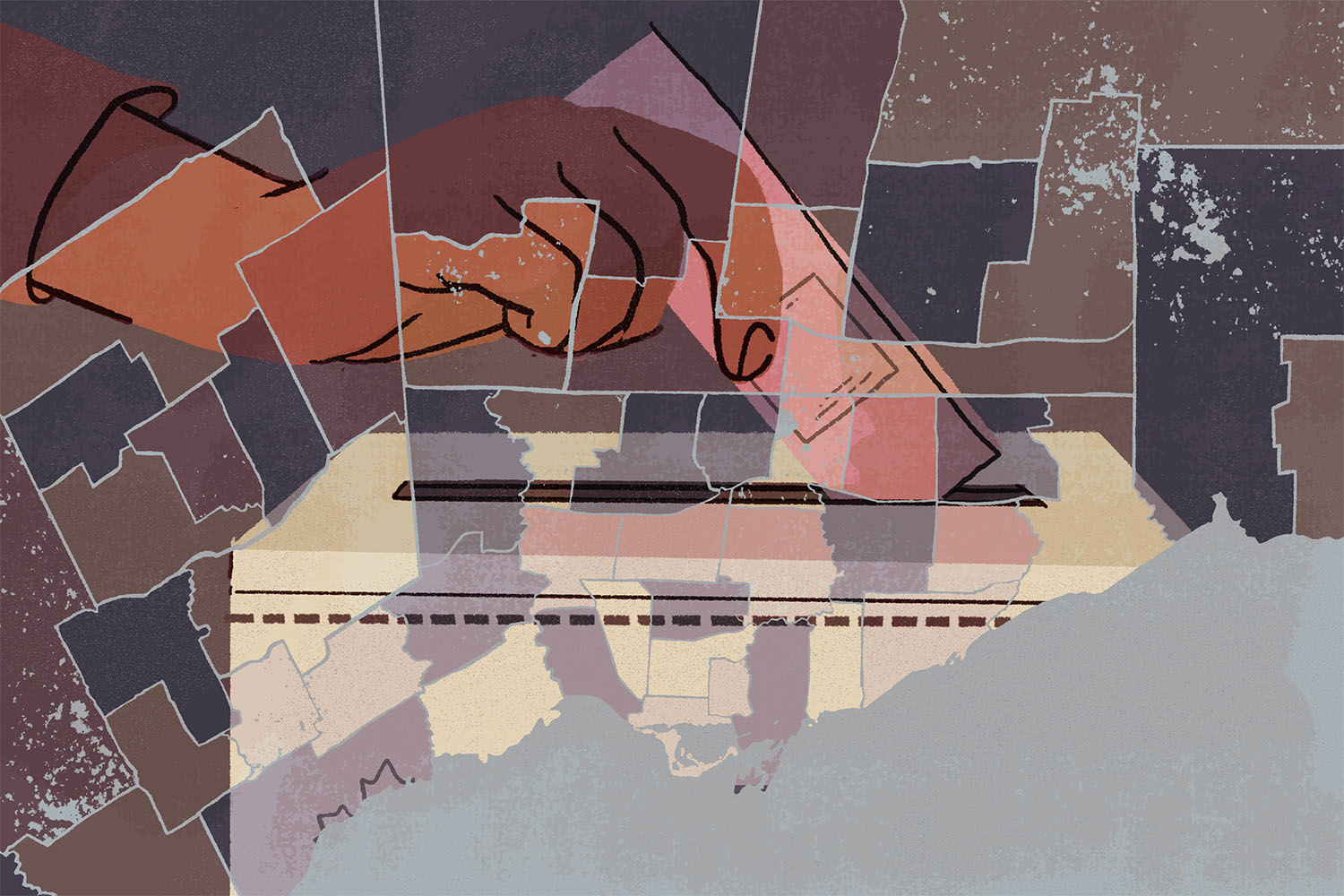
The northern edge of Don Valley North runs along Steeles Avenue from Bayview to Highway 404, while its southern boundary dips below the 401. Within these borders of a highly diverse riding, residents of Chinese descent make up the largest ethnic group, and roughly 30 percent of the population.
But like the Chinese diaspora across the country, those who live in this community are far from a homogenous voting bloc. They come from mainland China, Hong Kong, Taiwan, and other Asian countries. Some maintain strong emotional bonds to their old home, some cut all ties when they left, and others find themselves caught somewhere in between.
Tay, who is the first Conservative candidate of Chinese descent in Don Valley North since the riding was created in 1987, made international headlines just weeks before the election, after a Liberal candidate in the riding of Markham-Unionville apologized for “deplorable” comments he made in January, suggesting people could claim the bounty on Tay by bringing him in to the Chinese consulate. At the time, Tay was vying to become the Conservative candidate in that riding before securing a spot on the party’s ticket in Don Valley North. Paul Chiang, a former police officer and the candidate who made the remark, admitted to having a “complete lapse of judgment” and withdrew from the race amid mounting pressure. Some observers say what happened was sheer stupidity, and to play it up as foreign interference would be disingenuous.
But Tay was rattled. He issued a statement expressing fear for his safety. “[Chiang’s] threatening public comments were intended to intimidate me,” he stated. “I want to be clear: no apology is sufficient. Threats like these are the tradecraft of the Chinese Communist Party to interfere in Canada.”
“Everybody is terrified of getting the label that you are either interfered with or involved in interfering.”
It is perhaps not a surprise, then, that his team is protective of their candidate. He is running a “very quiet, but effective” campaign, a spokeswoman told me by phone.
At 61, Tay has aged as gracefully as one might imagine of someone who has spent decades in front of the camera. Among those who watch Hong Kong television and film or listen to Chinese radio stations in Canada, he is known as Cheng King-Kei. Tay, who was born in Hong Kong and spent time between there and Canada, gave up his 30-year acting career amid Beijing’s increasingly oppressive encroachment into the territory’s affairs and moved back to Canada, concerned for his personal safety due to his vocal advocacy for Hong Kong democracy and criticism of the Chinese government. Those concerns proved valid when the Hong Kong police issued a bounty and wanted notice, accusing Tay of “incitement to secession” and “collusion with a foreign country or with external elements to endanger national security.” The extraterritorial application of Hong Kong’s draconian national security law exemplifies the transnational repression exerted on some overseas Chinese.
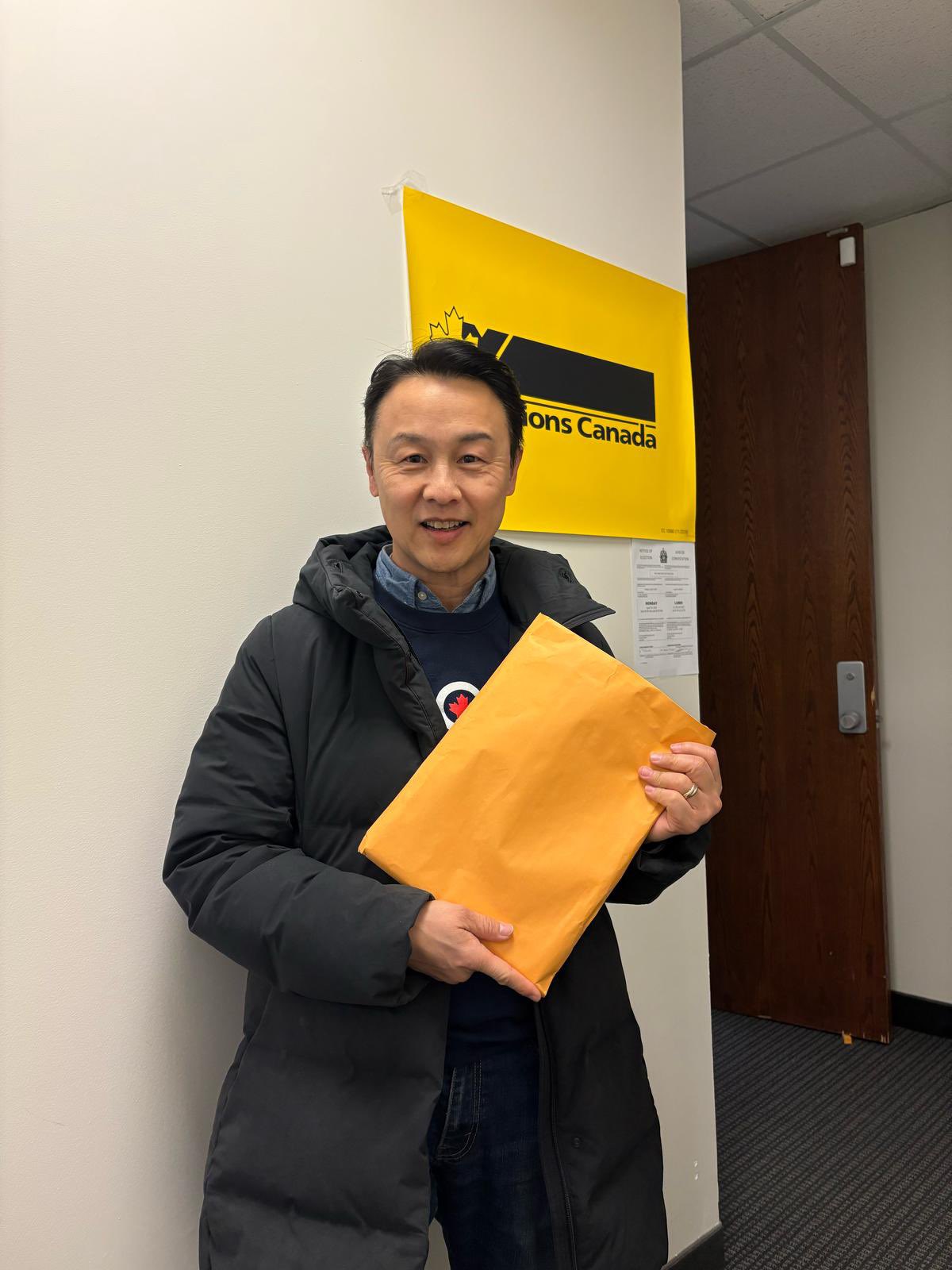
Even though the Canadian government announced this week that Canada’s Security and Intelligence Threats to Elections Task Force found Tay was the target of a transnational repression operation, it said a panel determined this activity was not affecting Canada’s ability to hold a free and fair election.
Now running in a pocket of North York that has consistently voted Liberal for more than three decades, Tay hopes to upend the status quo. But doing so while keeping a low profile may work against him.
One constituent I spoke to, who identified himself as a Poilievre supporter, said he recognized Tay faced unusual circumstances. “Maybe he’s worried and rightly so,” he said. Still, the supporter, who declined to give his name, admitted to being disappointed that he had yet to see or hear from Tay. “That’s the only thing I’m worried about,” he said. “He’s not active at all.”
Senator Woo agrees transnational repression is a real threat. “We should not tolerate it. If we see it, we should report it, and the authorities should put a stop to it. Period,” he said. But Woo believes a greater threat has emerged from foreign interference tensions.
“The bigger danger is an overreaction and a hysteria around national security which stigmatizes many Chinese Canadians simply because of who they are, where they come from, what their last names are, their accents, and what their views are.”
This is where Liberal candidate Chi finds herself, according to her campaign manager, Ted Lojko.
“Right now, if you stick your head up, it’s ridiculous,” he said, alluding to allegations and insinuations against candidates of Chinese descent in other ridings. Chi can talk to the media after the election is over, he said, but for now, they wanted her focused on canvassing and talking to constituents.
“Maggie is as Canadian as anybody else, but basically, just because she just happens to be a Mandarin speaker and just happens to be Chinese by background—we’re not really interested in playing all this nonsense,” he said.
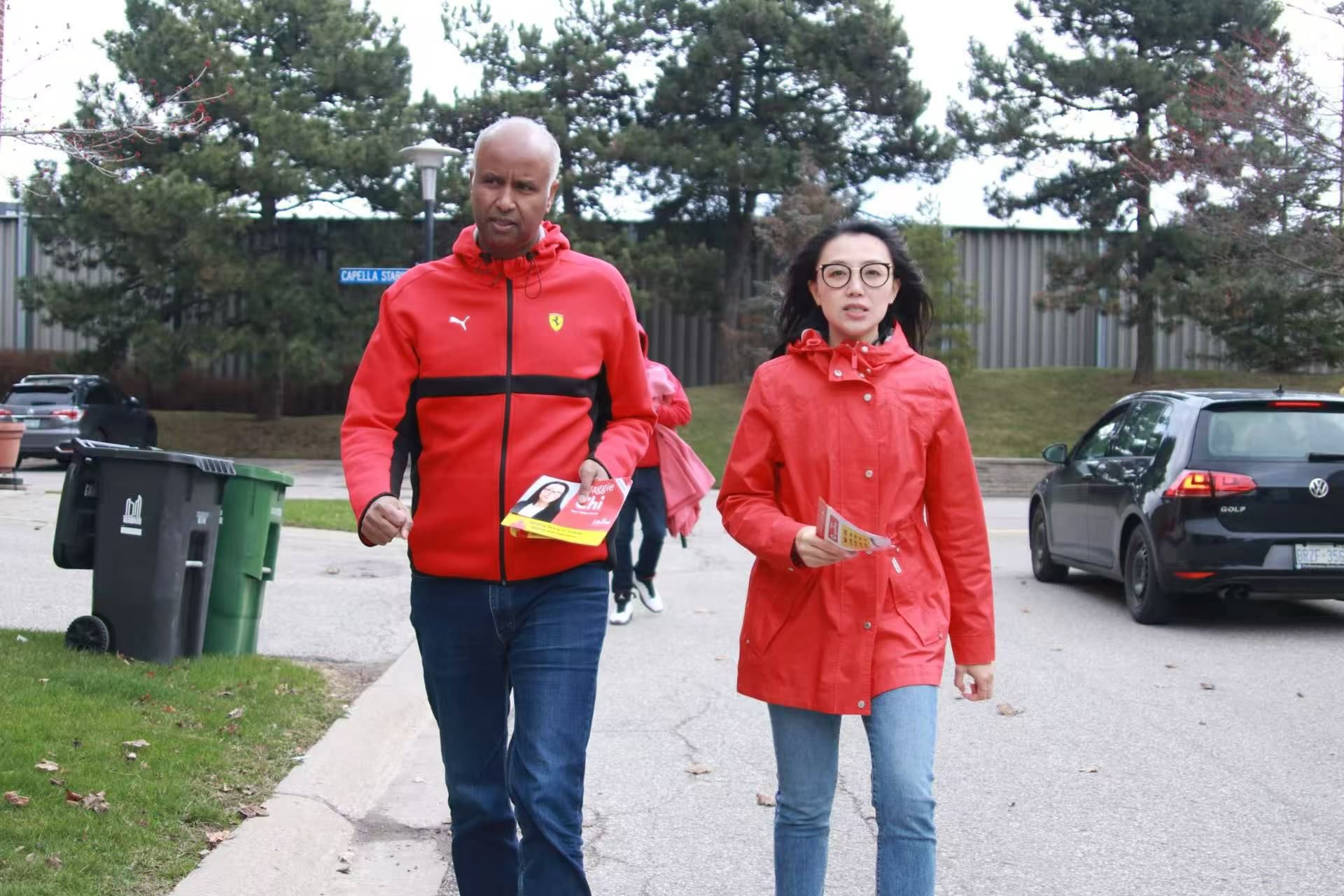
Lojko said there are still a lot of people who regret that Han Dong is not running, but those who were always going to vote Liberal, will still vote Liberal.
He would know. Lojko has known Dong for nearly 30 years. He was one of the people who encouraged Dong to run in 2019, and served as his campaign manager. These details appeared in an interview summary with Lojko for the public inquiry into foreign interference. The inquiry’s final report, released in January, found no evidence of “traitors” in Parliament conspiring against Canada. And last summer, an Ontario Superior Court judge said there was no documented evidence to support allegations against Dong.
This spring, when the Liberals chose Chi to run in Don Valley North instead of him, Dong opted to step aside altogether to avoid splitting the Liberal vote.
On a rainy late afternoon in April, the food court in Fairview Mall bustled with locals. For resident James Wong, one of the few willing to talk about the election with a stranger, the rationale behind his vote is simple: it’s about the party and the leader he wants in Ottawa. Wong and his wife have been Liberal supporters for at least 45 years, since the days of Pierre Trudeau. This time won’t be any different. Wong said the Liberals are friendlier to China than the Conservatives. Is that a good thing? “Yes, definitely! We’re Chinese.”
Days earlier, a few kilometres away, I had encountered a volunteer waiting for Tay at his campaign office on Finch Ave. He expressed disgust at the sea of Gong Xiao Hua signs that appeared overnight and blanketed the riding’s major corridors. Gong, yet another candidate of Chinese descent, previously ran unsuccessful mayoral campaigns in Toronto and Mississauga. He’s also pleaded guilty on behalf of his company to a pyramid scheme. His latest election run is widely seen as a sideshow, not a serious campaign. But it does nothing to ameliorate negative perceptions of Chinese-Canadians in domestic politics. This is not how we do things here in Canada, the volunteer, who declined to give his name, said in Mandarin.
Too many Chinese come here just to make money and don’t really care about being a “real Canadian,” he said. He came from China some 20 years ago, but still considers himself a newcomer learning how to be a good Canadian. He has no warmth for the country he left behind. He never once returned, and has no desire to. He was supporting Tay, he said, because he believed Tay was the best candidate and the Conservatives the best party to bring Canada back from decline.
Local Journalism Matters.
We're able to produce impactful, award-winning journalism thanks to the generous support of readers. By supporting The Local, you're contributing to a new kind of journalism—in-depth, non-profit, from corners of Toronto too often overlooked.
SupportDespite the apparent chilling effect it’s had on the leading candidates, most people I met didn’t seem to view foreign interference as a major flash point. Voters were more worried about the impact of the Trump administration on their lives.
Unlike Tay, who is a newcomer to the area, Chi and NDP candidate Naila Saeed may be familiar to some longtime residents. Chi spent more than 12 years at City Hall as an advisor to city councillors in this part of Toronto, and her community outreach work, familiarity with local issues, and ability to bring those concerns to the federal level makes her the best fit, members of her campaign team say.
Meanwhile, Saeed lived and worked here for decades as an educator, community leader, and activist. The house she lived in for 18 years, where she started her first daycare, now serves as her campaign office. Some of those children are back as adults volunteering to get her elected.
She faces an uphill fight. But unlike Tay and Chi, she can run without the looming shadow of foreign interference, and focus on the issues voters care most about, like affordability, jobs, health care, and education. She has seen how people in the area have struggled, and she wants to represent the voices of the silent voters. But going into politics is daunting, she admitted.
“You’re in public and people judge what you say and how you say it, and I’m not a politician. Sometimes it makes me scared, but then, at the end, I’m here for the people,” she said. “You have to step up—have to.”
It’s hard to know what Tay and Chi would say if foreign interference—or the perception of potential foreign interference—wasn’t a factor and they could talk freely about their campaign issues. How would they lend their voices to constituents? For now, at least, they’re not saying anything.
The Local’s Federal Election 2025 coverage is supported in part by our readers and by the Covering Canada: Election 2025 Fund.
